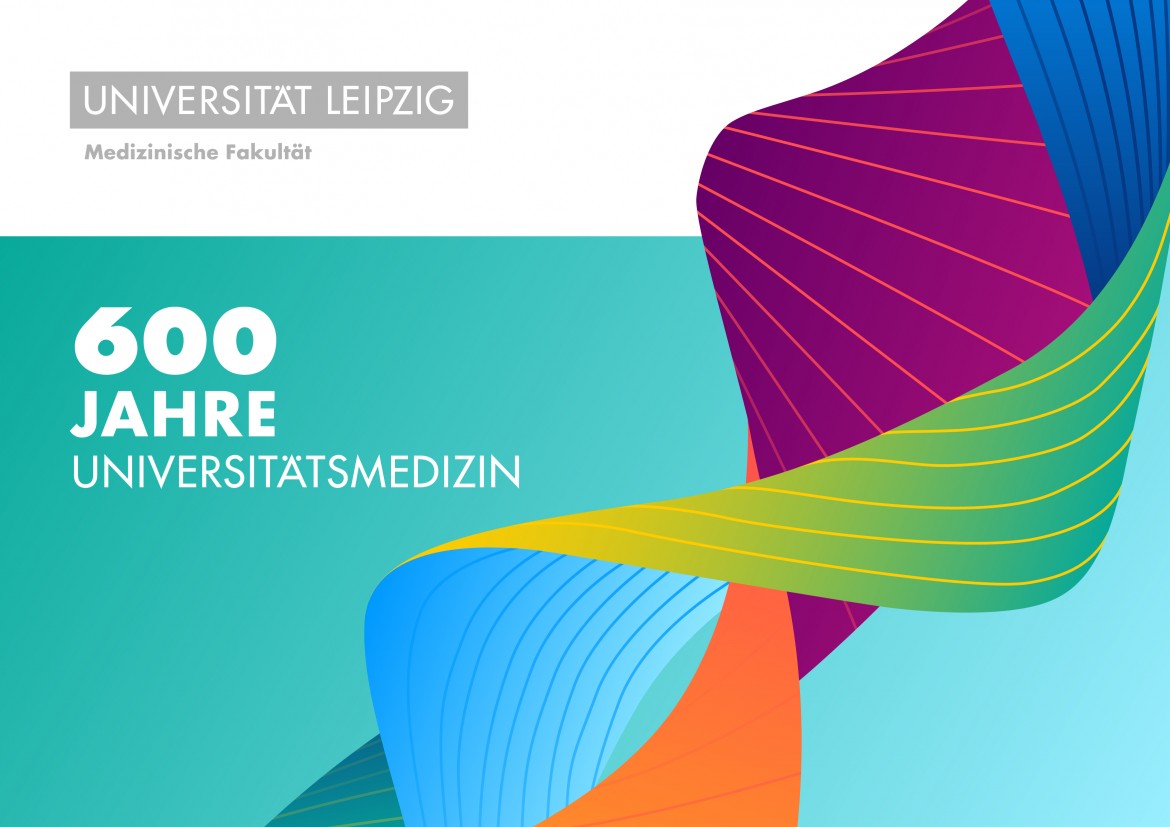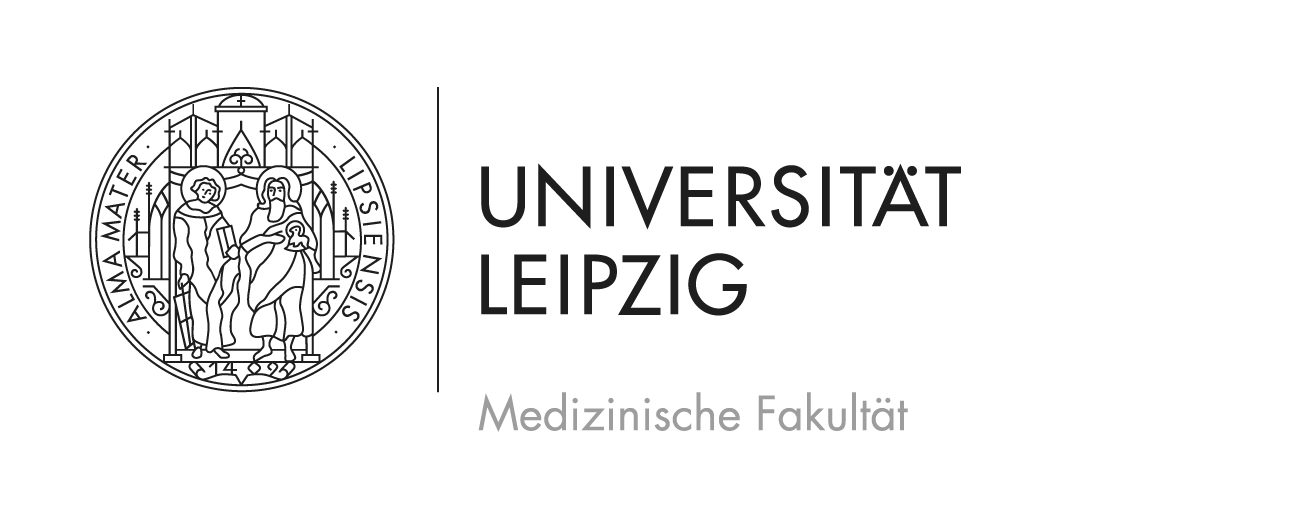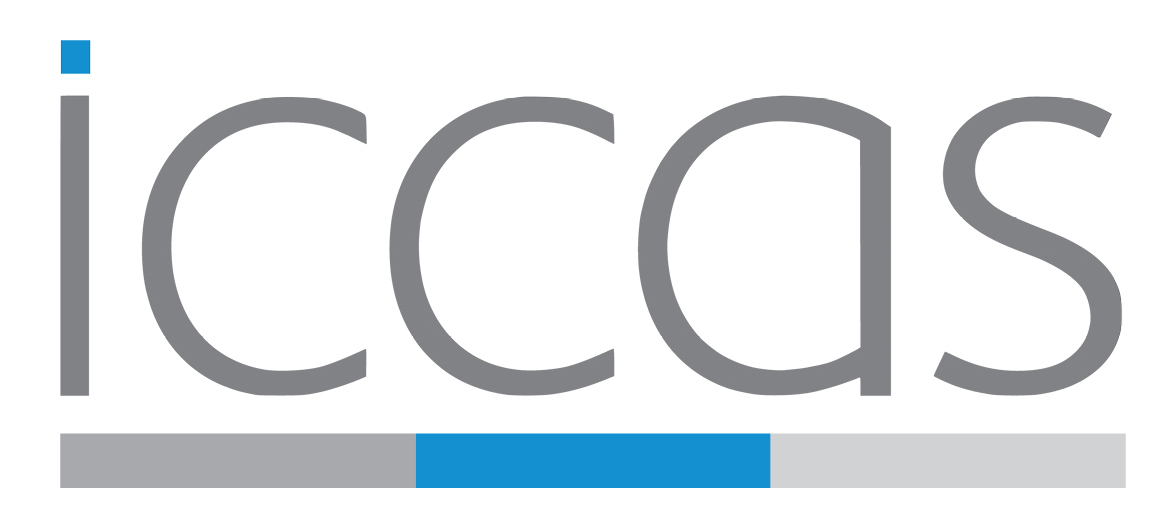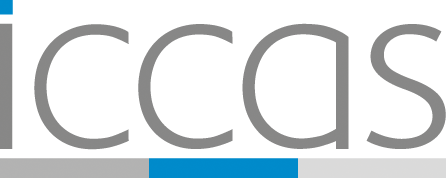01.09.2015
 Begeisterte DORS-Teilnehmer verabschiedet
Begeisterte DORS-Teilnehmer verabschiedet
01 September 2015
Last week ICCAS hosted the Digital Operating Room Summer School (DORS) for the second time. Participants came from all over the world to further their knowledge about the development of surgical assistance systems for the modern operating room. The one-week intensive course included lectures, practical workshops, a teaching session at the Faculty of Medicine’s Anatomical Institute, and surgical consultations at both the Heart Center and the newly opened operating theatre of the ENT Department at Leipzig University Hospital. DORS was a valuable opportunity for participants to find out about ICCAS’s key areas of innovation such as the Digital Patient Model, operating room infrastructure and workflow management, not to mention the latest technology used in practical areas. The participants praised the good balance between clinical and technical aspects as well as the theoretical explanations and practical sessions. In fact, a number of young computer scientists gained their first surgical experience, while some engineers picked up a surgical instrument for the very first time as they used phantoms to experience the advantages of high-tech developments for surgeons. Apart from ICCAS’s own researchers, the speakers included renowned clinical experts from Leipzig and also international experts in computer-assisted surgery. The participants benefited from direct interaction with experienced scientists and received advice regarding their own fields of research.
The positive feedback and higher attendance compared to last year, including visitors from Europe, Canada and America, are very encouraging for the continuation of DORS next year.
[nggallery id=26]
28.08.2015
 Gelungene Presseeinladung zum 10-jährigen ICCAS-Jubiläum
Gelungene Presseeinladung zum 10-jährigen ICCAS-Jubiläum
27. August 2015
Anlässlich seines 10 jährigen Jubiläums lud das ICCAS am 27.08.2015 zu einem Pressegespräch ein. Institutsdirektor Prof. Andreas Melzer und Prof. Thomas Neumuth informierten über den erfolgreichen Werdegang sowie aktuelle und zukünftige Projekte des Instituts. Prof. Melzer erläuterte in diesem Zusammenhang die möglichen Anwendungen des Fokussierten Ultraschalls unter Magnetresonanztomographie, die im neuen ICCAS-Forschungsfeld „Nichtinvasive Bildgebende Chirurgie“ eine große Rolle spielen werden. Anschließend erklärten Wissenschaftler am Computerkonstrukt den Stand der Forschung zum „Digitalen Patientenmodell“. Der Demo-OP wurde zur Kulisse für die eindrucksvolle Simulierung einer Nasennebenhöhlen-OP unter Steuerung eines mitdenkenden Assistenzsystems, das die OP-Schritte erkennt und den Chirurgen vor Gefahrensituationen warnt. Die Demonstration der „Magischen Linse“ – eines iPads mit dem der Chirurg wie durch ein Fenster ins Innere des Körpers schauen kann – war abschließender Teil der gelungenen ICCAS-Präsentation.
[nggallery id=24]
22.07.2015
 Evaluation der Creative Unit „Intra-Operative Information“ der Universität Bremen am ICCAS
Evaluation der Creative Unit „Intra-Operative Information“ der Universität Bremen am ICCAS
20. Juli 2015 Vergangene Woche besuchten Mitarbeiter und Bachelorstudenten der Creative Unit „Intra-Operative Information“ der Universität Bremen das ICCAS. Die fachübergreifende Forschungsgruppe, deren Leiter Prof. Ron Kikinis vom Fraunhofer MEVIS ist, beschäftigt sich vor allem mit dem Problem der Mensch-Maschine-Interaktion bei der Verwendung von Bilddaten im Operationssaal.
Die Besucher aus Bremen nutzten den ICCAS-Demo-OP als kliniknahes Umfeld für die Evaluation von Fußschalter-Interaktionskonzepten, die im Rahmen eines Bachelorprojekts entstanden. ICCAS-Wissenschaftler sowie Kliniker testeten die Prototypen und setzten mit ihren Expertisen entscheidende Impulse für deren Verbesserung. Ziel ist, dass der Chirurg selbst während einer OP mit den Bilddaten (wie z.B. 3D-Modellen) arbeiten kann.
16.07.2015
 Impressionen vom Erlebnisparcours Medizin
Impressionen vom Erlebnisparcours Medizin
13. Juli 2015
Der Mitmachstand des ICCAS auf dem Erlebnisparcours Medizin lockte viele neugierige Bürger an, einmal selbst ein computergesteuertes chirurgisches Assistenzsystem in die Hand zu nehmen. Groß und Klein nutzten die Möglichkeit, Eingriffe in die Nasennebenhöhlen per Hightech- Endoskop zu simulieren oder mit einer Felsenbeinfräse an originalgetreuen Schädelphantomen zu fräsen. Die Faszination der „Magischen Linse“, mit der anatomische Strukturen innerhalb des Körpers sichtbar werden, konnte live und auf Video bestaunt werden. Prodekan Prof. Ingo Bechmann vom Nachbarstand „Anatomisches Institut“ meldete sogar Interesse an, dieses eigentlich für die intraoperative Assistenz entwickelte System im Anatomieunterricht der Medizinstudenten einzusetzen. Diese Idee soll jetzt geprüft werden.
Während die Jubiläumsfeier der Medizinischen Fakultät bereits wieder der Vergangenheit angehört, bereitet sich das ICCAS auf das eigene Jubiläum „10 Jahre ICCAS“ vor, das mit dem ICCAS International Symposium am 29. August 2015 seinen Höhepunkt findet.
[nggallery id=23]
14.07.2015
 Erster Impuls für ICCAS-MPI-Kooperation
Erster Impuls für ICCAS-MPI-Kooperation
14. Juli 2015
Vorerst für 3 Jahre steht ICCAS-Direktor Professor Andreas Melzer als Research Associate am Max-Planck-Institut (MPI) für Kognitions- und Neurowissenschaften die Tür für geplante Kooperationsarbeiten offen. Im Fokus der gemeinsamen Forschung liegt die Anwendung des Magnetresonanz-geführten fokussierten Ultraschalls (MRgFUS) auf die Neuromodulation und -stimulation. Professor Melzer, der seit 2009 die Entwicklung des Verfahrens MRgFUS vorantreibt, wird dabei mit der Forschungsabteilung Neurologie um MPI-Direktor Professor Arno Villringer zusammenarbeiten. Ziel der Kooperation ist die verbesserte Diagnose und nichtinvasive Therapie von Hirnveränderungen nach Schlaganfall und funktioneller neurologischer Erkrankungen. Auf dem ICCAS-Symposium am 29. August 2015 in Leipzig wird Professor Villringer dazu einen Gastvortrag halten und das Projekt näher vorstellen.
July 14, 2015
During the next three years, ICCAS director Andreas Melzer will be Research Associate at the Max Planck Institute for Human Cognitive and Brain Sciences Leipzig. Corporate research will concentrate on the application of Magnetic Resonance-guided Focused Ultrasound (MRgFUS) in neuronal modulation and stimulation. Aim of the cooperation is a better diagnosis and non-invasive therapy for stroke patients or patients with functional neurologic deficits.
MPI director Arno Villringer will profit from Melzer’s expertise in pushing forward the developments in MRgFUS since 2009. Villringer will be talking about this project in more detail at the ICCAS Symposium held on August 29, 2015 in Leipzig.
08.07.2015
 ICCAS-Forschung erleben auf dem Erlebnisparcours „6oo Jahre Universitätsmedizin Leipzig“
ICCAS-Forschung erleben auf dem Erlebnisparcours „6oo Jahre Universitätsmedizin Leipzig“
 08. Juli 2015
08. Juli 2015
Wenn am Freitag die Medizinische Fakultät zum Mitmachen und Verweilen auf den Augustusplatz einlädt, wird auch das ICCAS mit einem spannenden Forschungsobjekt vor Ort sein. Im großen Informationszelt warten Wissenschaftler der Arbeitsgruppe Modelbasierte Automation und Integration (MAI) darauf, mit der „Magischen Linse“ anatomische Strukturen zu erkunden. Besucher sind herzlich willkommen, dieses neuartige System zur intraoperativen Assistenz für chirurgische Eingriffe an einem Patientenphantom auszuprobieren. Am Stand wird es zudem in multimedialer Form weitere Informationen zu den Forschungsaktivitäten des ICCAS geben.
Das ICCAS-Team freut sich auf wissbegierige Gäste und wünscht viel Spaß!
Wann: 10. Juli 2015, 11 – 21 Uhr
Wo: Augustusplatz Leipzig, großes Informationszelt der Medizinischen Fakultät der Universität Leipzig
Eintritt frei

 Gelungene Präsentation des ICCAS auf dem CARS-Kongress in Barcelona
Gelungene Präsentation des ICCAS auf dem CARS-Kongress in Barcelona
08. Juli 2015
Auf der wichtigsten internationalen Fachkonferenz für computergestützte Chirurgie und Radiologie (CARS) präsentierten Wissenschaftler des ICCAS in diesem Jahr nicht nur ausgewählte Projektergebnisse. Während einer einstündigen Session zum zehnjährigen ICCAS-Jubiläum stellten Geschäftsführer Prof. Andreas Melzer, Forschungsgruppenleiter Prof. Thomas Neumuth (MAI), Mario Cypko (DPM) sowie Vorstandsmitglied Prof. Andreas Dietz (UKL) die Gesamtergebnisse und Perspektiven der drei Forschungsfelder des ICCAS einem internationalen Fachpublikum vor. Die sehr gut besuchte Veranstaltung diente gleichzeitig als Offerte, das hier gezeigte Expertenwissen während der Digital Operating Room Summer School (DORS 2015) des ICCAS im August dieses Jahres eingehender zu studieren.
Vorträge zu einzelnen Projektarbeiten am ICCAS hielten Stefan Franke (MAI) und Erik Schreiber (MAI) im “Workshop on Surgical PACS and the Digital Operating Room” sowie Jens Meier (MAI) und Mario Cypko (DPM) im Workshop „Personalized Medicine & ICT“. Prof. Thomas Neumuth (MAI) referierte in einem eingeladenen Vortrag über Anwendungsfälle für IHE Integrationsprofile und nahm am Kick-off Meeting der Arbeitsgruppe „IHE Surgery“ teil.
Die Wissenschaftler informierten u.a. über eine Methodik zur Voraussage chirurgischer Arbeitsabläufe im Operationssaal als Grundlage für die Entwicklung kontextsensitiver Workflow Management Systeme und über eine Infrastruktur zur Verteilung von chirurgischen Prozessmodellen basierend auf Cross-enterprise model sharing (XMS) Konzepten. Die Verbesserung Digitaler Patientenmodelle durch Hinzunahme von Prozessinformationen war weiterer Themeninhalt. Zudem wurde am Beispiel von Kehlkopfkrebs eine webbasierte Anleitung klinischer Experten durch die Modellierung von Behandlungsentscheidungsmodellen vorgestellt.
Die CARS ist für das ICCAS das jährliche Kongress-Highlight. Es ist das Forum für den internationalen Wissensaustausch unter Informatikern, Ingenieuren und Medizinern über zentrale Innovationen und Technologien im Bereich computergestützte Chirurgie. Schwerpunkte bilden u.a. bild- und modellgestützte Interventionen, der intelligente OP der Zukunft, Entscheidungs- und Therapieunterstützung im chirurgischen Management, computergestützte Diagnose sowie die modellgestützte und – weiterhin auf dem Vormarsch – die personalisierte Medizin.
[nggallery id=22]

 29 European CME credits (ECMEC) für Teilnahme an der DORS 2015
29 European CME credits (ECMEC) für Teilnahme an der DORS 2015
The 2nd ICCAS Digtital Operating Room Summer School (DORS 2015) was granted 29 European CME credits (ECMEC) by the European Accreditation Council for Continuing Medical Education (EACCME).
For further information an registration please go to: www.iccas.de/dors
22.06.2015
 Dr. Ronald Bauer vom Kantonsspital St. Gallen über tcMRgFUS im ICCAS Kolloquium
Dr. Ronald Bauer vom Kantonsspital St. Gallen über tcMRgFUS im ICCAS Kolloquium
Am Montag, dem 06. Juli 2015 wird Dr. Ronald Bauer vom Kantonspital St. Gallen zu Gast im ICCAS-Kolloquium sein. Er referiert zum aktuellen Stand und zum zukünftigen Potential der Transkraniellen Magnetresonanz-gesteuerten hochintensiven fokussierten Ultraschall-Neurochirurgie (tcMRgFUS). Alle Interessenten sind herzlich willkommen.
Datum: Montag, 06.07.2015
Uhrzeit: 16:30 Uhr
Ort: „Glaskasten“ im Haus 4, Liebigstraße 20, Leipzig
Abstract zum Vortrag:
Transcranial magnetic resonance imaging-guided focused ultrasound surgery (tcMRgFUS) is a novel technique to supplement the spectrum of established neurosurgical interventions. It is noninvasive and entirely imaging-guided with continuous temperature measurements at and around the target in real time. TcMRgFUS has no trajectory restrictions and does not involve ionizing radiation. Since no device is implanted into the brain or the body, there is no restriction to future diagnostic work-up with MR imaging.
Ongoing clinical studies on over 300 patients worldwide with neuropathic pain, essential tremor and Parkinson’s disease are very promising and demonstrate that ultrasound energy can precisely be focused through the intact skull, without overheating it.
We regard targeting of pallido-thalamic tract and cerebello-thalamic tract by high intensity focused ultrasound (HIFU) as an interim but necessary procedure to reach two other future goals by LIFU (low intensity focused ultrasound): Neuromodulation as a diagnostic tool to be able to establish new targets for either deep brain stimulation or tcMRgFUS and BBB opening for anatomical selective targeted drug delivery.
Arbeitsschwerpunkte von Dr. Ronald Bauer:
Kontakt:
Dr. med. Ronald Bauer
Oberarzt Neurochirurgie
Kantonsspital St.Gallen
9007 St. Gallen
Tel. +41 71 494 30 54
E-mail ronald.bauer@kssg.ch
19.06.2015
 ICCAS in bewegten Bildern – Wer wir sind und woran wir forschen.
ICCAS in bewegten Bildern – Wer wir sind und woran wir forschen.
19. Juni 2015
Erfahre in 6 aufschlussreichen Minuten, wer hinter dem ICCAS steht und wofür sich die Wissenschaftler des Innovationszentrums für Computer Assistierte Chirurgie einsetzen.
Das neue Imagevideo lässt Menschen und Orte sprechen, die mit der Entwicklung und Anwendung intelligenter Technologien für die operative Medizin am ICCAS verbunden sind. Es zeigt, wie sich die Fortschritte positiv auf Operationen und Therapieentscheidungen auswirken, welche Innovationen den Weg in die Praxis fanden und wie der Blick in die Zukunft aussieht.
Wir wünschen gute Unterhaltung!
19 June 2015
Learn within 6 minutes who is behind the ICCAS and what the scientists of the Innovation Center Computer Assisted Surgery stand for.
The new image video let people and places speak associated with the development and application of intelligent technologies for operative medicine at ICCAS. It shows the positive effects of the progress on operations and therapeutic decision-making, innovations in practical application and ICCAS’ look into the future.
We wish good entertainment!




